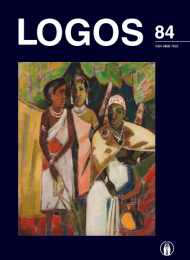Platonas vs Zenonas, Arba Esinių Ontiškumo Problema Parmenide
Plato vs Zeno or the Problem of Ontological Status of Existences in Parmenides
Author(s): Skirmantas JankauskasSubject(s): Epistemology, Ancient Philosphy, Existentialism, Ontology
Published by: Visuomeninė organizacija »LOGOS«
Keywords: subject of philosophizing; anamnesis; participation; existences; being; many; one;
Summary/Abstract: The paper discusses the problem of the ontological status of existences. Plato deals thoroughly with the problem in Parmenides, perhaps the most analytical of his dialogues. The prominent Eleatic philosopher, who laid down the fundamentals of ontology, has inferred that only being exists and that existences are just empty names. Plato follows Parmenides and treats being as a goal of philosophizing. However, he follows Socrates as well and treats virtue as another goal of philosophizing. The latter goal compels Plato to concentrate upon the subject of philosophizing, an entity that was totally ignored in the early Greek philosophy. In Phaedo Plato demarcates the subject, identifies it with body and in this way unearths an abyss between the subject of philosophizing and being. Plato puts forward a theory of anamnesis as a way to bridge the abyss. By analyzing the ontological premises of anamnesis, Plato revives the concept of participation that supposes the logical link between existences and ideas. Presuming that existences partly overtake the content of ideas, the inference follows that existences could not be treated as ontologically meaningless. Consequently, Plato is compelled to rehabilitate the ontological status of existences. This explains why Plato in the opening part of Parmenides forces the very young Socrates to debate with Zeno, the most ardent follower of Parmenides. In his famous aporias Zeno disputed the possibility of many, consequently, of existences as well.
Journal: LOGOS - A Journal of Religion, Philosophy, Comparative Cultural Studies and Art
- Issue Year: 2015
- Issue No: 84
- Page Range: 6-14
- Page Count: 9
- Language: Lithuanian

